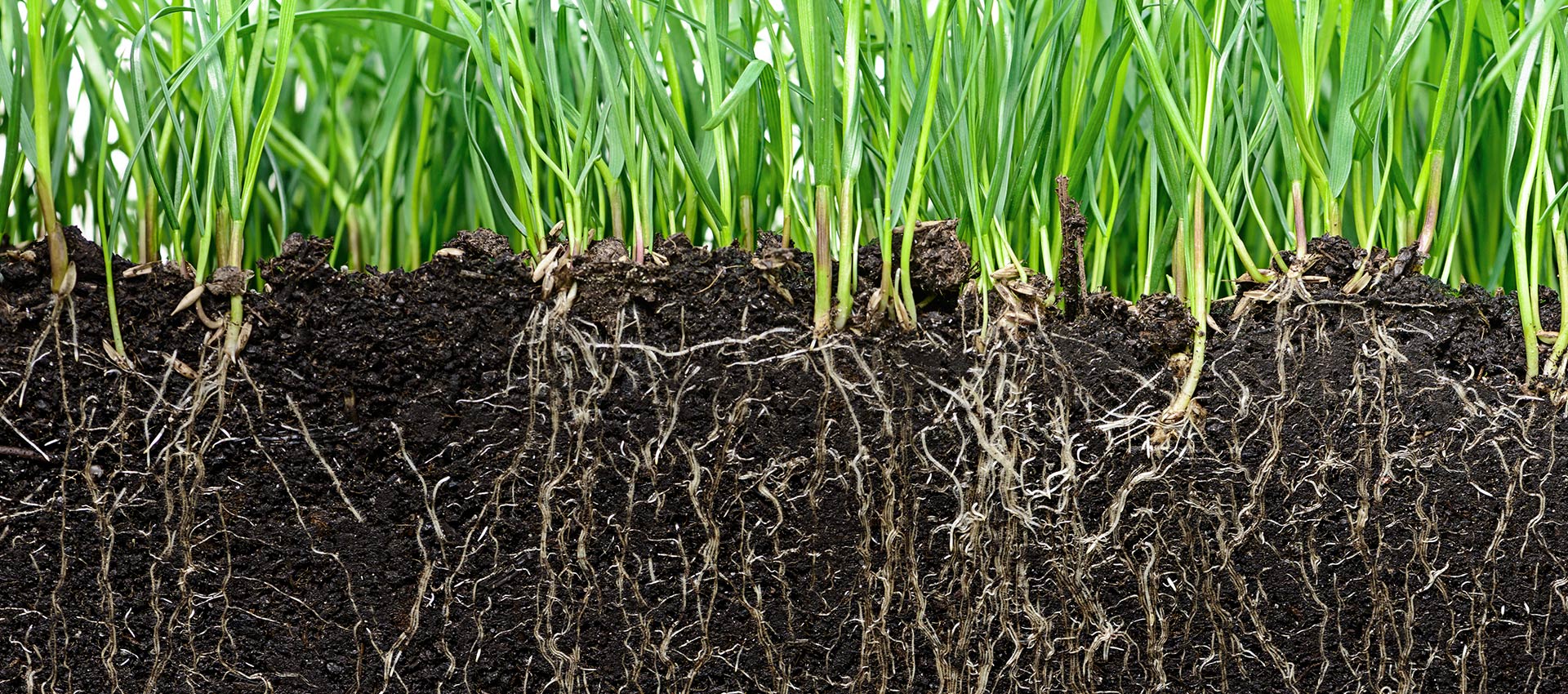
Improved Soil Health
Over time, your soil can become depleted of organic nutrients and become compacted due to cycles of watering and drought. In the past, the solution has been to add organic material (compost) or chemical fertilizers to amend the soil and water it regularly. Unfortunately, the nutrients are washed away with irrigation and regular rainfall.
The missing ingredient to building healthy soil is biochar. Biochar is pure carbon, a soil conditioner and enhancer that retains microbes and nutrients and retains water for more vigorous root growth and healthier plants. Think of biochar as millions of storage compartments that hold and release nutrients and water to your plants. Biochar also reduces the effects of climate change and water pollution.
Plants require four things for healthy growth: sunlight, nutrients, water, and microorganisms. Biochar is a vehicle for everything but the sunshine.
Nutrients
Biochar is an excellent material for housing microorganisms that produce nutrients and release them to feed plants’ roots. One of the advantages of adding biochar to your soil is that the microbes continue to deliver nutrients and release them for plant roots to absorb.
Water Retention
When soil cannot retain a healthy moisture level, it negatively impacts your plants through stress and stunted growth, making them more susceptible to disease. It’s one of the reasons your vegetable garden produces smaller and less flavorful produce. Tomatoes and other vegetables that split are a good indication that there is a moisture imbalance in your soil. Biochar retains moisture and releases it as needed to prevent dramatic swings of excessive moisture and dryness and improves drought tolerance. Biochar holds more water than compost and peat moss. For example, conventional soil can hold about 33lbs of water per cubic meter. Adding 5% biochar to the same soil allows it to hold 195lbs of water (almost six times the water).
A 2014 study at Rich University found that biochar reduced water runoff in sandy soils and increased water flow in heavy clay soils.
Improved Yields
When biochar is applied, the results are often dramatic, with increased growth and yields of 20% or more. An added benefit is the increased flavor of fruits and vegetables because they are healthy, unstressed, and receive the needed amounts of nutrients and moisture.
A Permanent Organic Solution
Biochar is at the heart of changing agriculture from chemical-based to biological-based. Biochar is pure carbon, and it does not degrade over time. It is also organic, and it contains no synthetic or chemical additives. Biochar will last for hundreds, if not thousands of years. Fields found in the Amazon that are over 5,000 years old still contain active biochar.
Reduces the Effects of Climate Change and Water Pollution
The production of biochar removes carbon (CO2) in the atmosphere and transforms it into a solid material beneficial to the soil. Biochar is not carbon neutral; it is carbon negative! Biochar reduces CO2 in the air and a negative impact on our climate.
Worldwide, biochar is being implemented in developing countries to improve soil conditions for crops with increased yields. It reduces the pressure to cut old-growth forests for more agricultural land.
Secondly, biochar holds in the nutrients that would otherwise be washed away by rain. Most importantly, there is no need for adding chemical fertilizers annually to the soil, which are then washed away and end up polluting our rivers, lakes, and streams.
Livestock
Biochar acts as a highly effective odor reducer and feedstock enhancer. Spreading 5-15% biochar by volume on livestock bedding and litters (chickens, cows, horses, etc.) captures the urine and manure nutrients. It absorbs ammonia, which improves the smell and sanitation of the animal pens.
Adding 1-3% biochar to feedstock has a probiotic effect by improving an animal’s digestion, detoxifies their gut, increasing feed efficiency, and binds odor-causing chemicals like ammonia before excretion to reduce the odor. Studies have shown that cattle weight increased by 20% with the introduction of biochar in their feed.
An added benefit is that biochar collected from the animal’s bedding that was either spread or excreted is activated and ready to be used in your soil.
